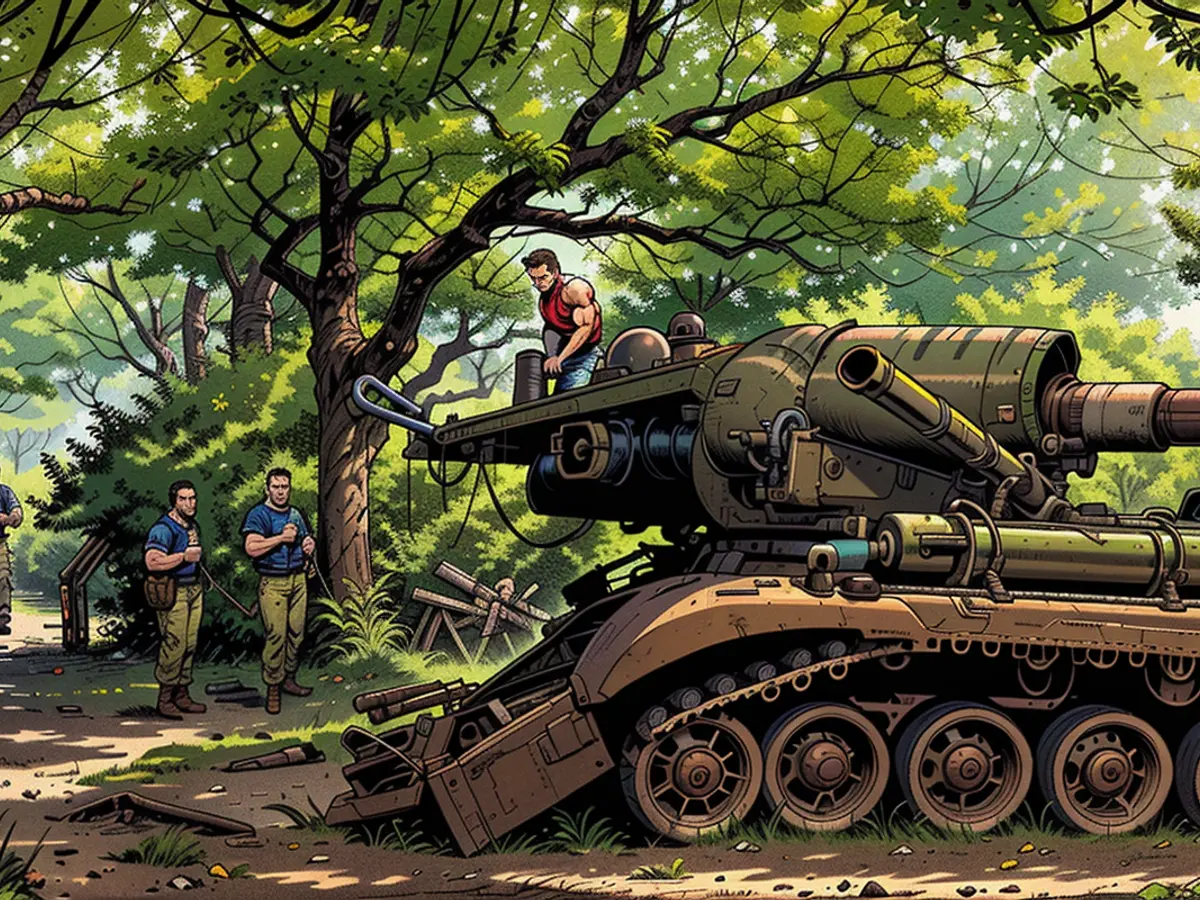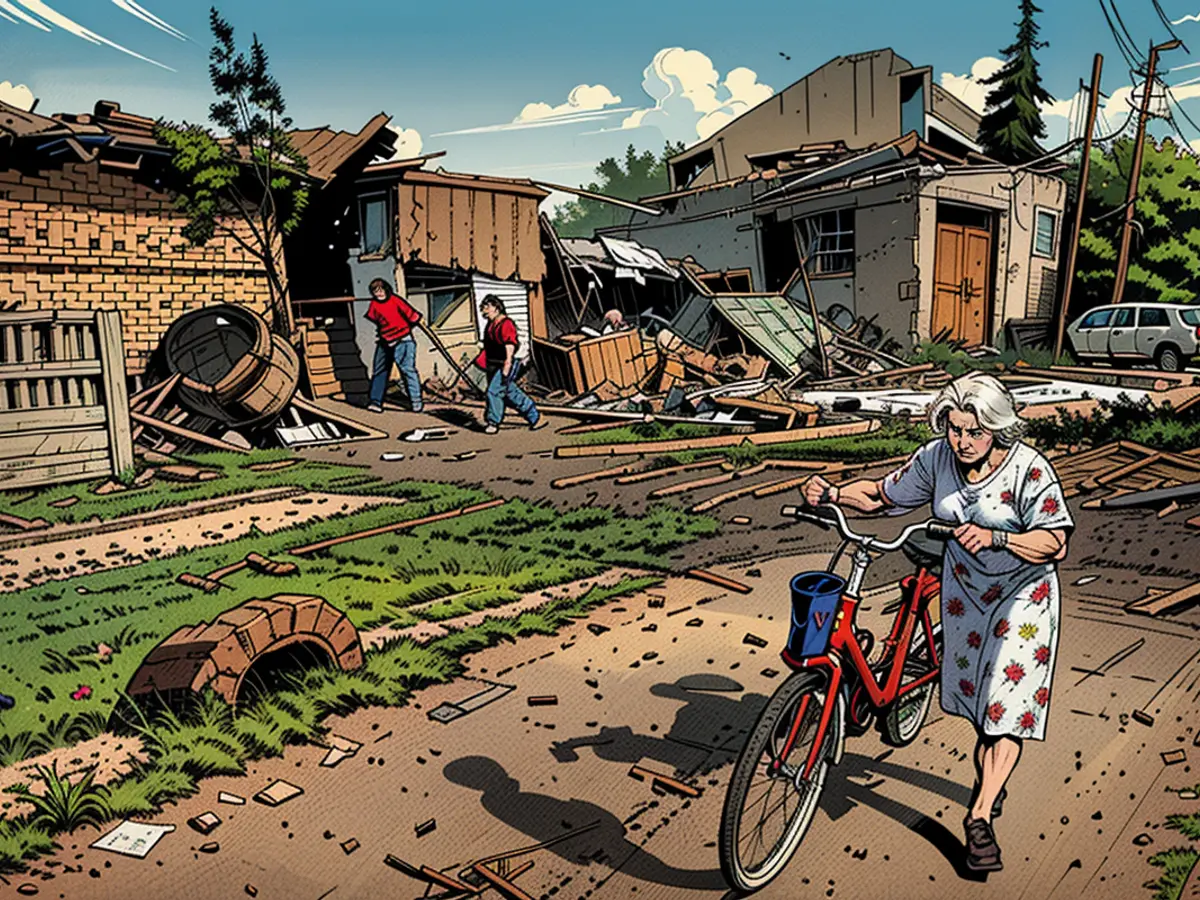Russia is swiftly advancing towards a crucial Ukrainian city, overlooking a setback in Kursk.
Although Pokrovsk isn't a significant metropolis, with around 60,000 inhabitants prior to the conflict and many leaving since the initiation of the full-scale invasion, it plays a vital role for the Ukrainian military due to its proximity to Kostiantynivka, another strategic military center.
Ukrainian soldiers utilize the road linking the two locations for supplying front lines and evacuating wounded personnel towards Dnipro.
Serhii Dobriak, the head of Pokrovsk city military administration, urged locals to evacuate promptly.
"The adversary is swiftly approaching Pokrovsk's outskirts," he declared in a Telegram post on Thursday.
His statement corroborates the fact that Moscow hasn't subsided in its assault on other Ukrainian territories, despite Kyiv's successful infiltration across the border over the past week, a significant development following two-and-a-half years of open conflict.
Ukraine claims to have seized over 1,000 square kilometers (386 square miles) of Russian territory since the beginning of its surprise offensive, resulting in tens of thousands of Russian occupants being displaced from their homes.
On Friday, Ukrainian authorities reported that their forces, already 35 kilometers deep into Russian territory, are still progressing "in certain areas by up to 3 kilometers."
Russia seems to have redeployed several thousand troops from active combat in occupied Ukraine to address the territorial loss in the Kursk region.
However, according to Dobriak, the adversary is "practically touching" Pokrovsk, Ukraine's logistical and military center that has emerged as the primary target of the Russian offensive in the Donetsk region.
"They are slightly over 10 kilometers (about 6.2 miles) away from Pokrovsk's outskirts," he stated, further elaborating that the situation "is gradually deteriorating."

For months, Russia has been straining Ukrainian defenses along the entire front line, attempting to capture as much territory as possible before newly enlisted Ukrainian soldiers and fresh deliveries of Western weaponry arrive on the battlefield.
The territorial gains made by Russia have been largely incremental – the front line has barely shifted in the past few months – but the recent advance towards Pokrovsk has raised concerns among Ukraine and its allies.
The capture of Pokrovsk would bring Russian President Vladimir Putin closer to his objective of annexing all of the eastern Ukrainian regions of Luhansk and Donetsk.
Kostiantynivka represents the southernmost segment of a string of four Ukrainian cities – Including Druzhkivka, Kramatorsk, and Sloviansk – that form the backbone of Ukraine's defense in the region. Therefore, any advance of Russian troops towards the city is significant.
Serhii Tsehotskyi, an officer of Ukraine's 59th Separate Motorized Infantry Brigade, informed Ukrainian national broadcaster Suspilne on Friday that Ukraine's offensive into Russia has not resulted in a decline in Moscow's attacks in the Donetsk region.
He stated that Russian efforts to advance do not cease "for even a minute," and "the battles continue round the clock."
"Considering the situation in the Kursk region, they (the Russian forces) are trying to achieve success somewhere," he added.
Army chief Oleksandr Syrskyi acknowledged on Friday that "intense fighting" is underway in the cities of Pokrovsk and Toretsk.
According to the US-based Institute for the Study of War, Russian forces are "maintaining their relatively high offensive tempo" in Donetsk, "indicating that the Russian military command continues to prioritize advances in eastern Ukraine even as Ukraine is pressing Russian forces within" the Kursk region.

The European Union and various global leaders have expressed their concern over the escalating conflict in Pokrovsk, understanding its significance as a key logistical and military center for Ukraine in the Donetsk region. Due to Russia's advancement, the world is closely monitoring the situation to prevent potential wider implications in Europe.







